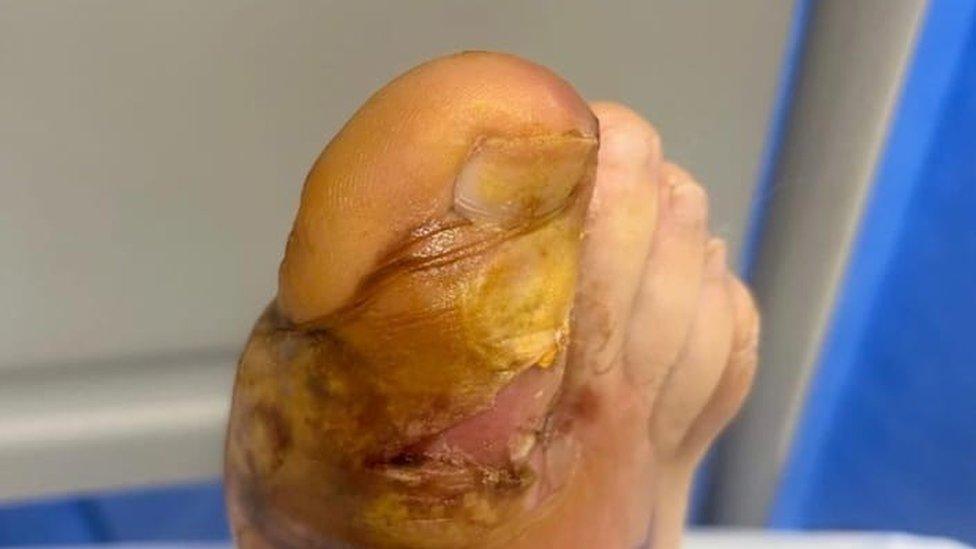Cramlington man claims spider laid eggs in his toe
- Published

Colin Blake claims a spider bit him while on holiday
A man has received hospital treatment after claiming a wolf spider laid eggs in his toe while on holiday.
Colin Blake was celebrating his 35th wedding anniversary in France when his toe turned purple overnight.
As he was travelling on a cruise, he visited the ship's doctor and was told that the swelling had been caused by a wolf spider.
But an arachnologist has said wolf spiders were incapable of laying their eggs inside humans.
The initial report was based on information given by Mr Blake to a hospital, which referred to a Peruvian wolf spider.
Mr Blake, from Cramlington, Northumberland, told BBC Radio Scotland's Drivetime he was bitten while he and his wife were having a meal outdoors in Marseille.
Warning: this article contains an image some might find upsetting
After his toe began to look infected, medical staff cut it open with a scalpel and a milk-like pus came out.
Mr Blake claims spider eggs were seen in the liquid.

Mr Blake's toe turned red and swollen while on holiday
Back in the UK, Mr Blake was treated at hospital and was given a course of antibiotics to reduce the swelling.
He is set to make a full recovery.
An expert has disputed Mr Blake's claim that a spider could have laid its eggs in a human foot.
Dr Sara Goodacre from the University of Nottingham said: "I can't possibly see how it could be true at all because I know about their biology.
"[The egg sacs] take quite a while to spin. The spider venom is not necrotising, it is designed to paralyse a fruit fly."
She said that when a wolf spider lays it eggs, they are kept in a substance that looks like a ball of cotton, which some species carry on their backs.
Dr Goodacre said there had been no reports suggesting the eggs could live in a "pus-infected wound".
She added: "There is no European wolf spider that could really penetrate the skin."
The British Arachnological Society also called it "implausible".

Update 28 November 2023: This article has been amended to clarify that these were claims made by the patient, and to include the opinion of spider experts who expressed disbelief that this could have happened.

Follow BBC North East & Cumbria on X (formerly Twitter), external, Facebook, external and Instagram, external. Send your story ideas to northeastandcumbria@bbc.co.uk, external.
Related topics
- Published18 April 2023

- Published25 November 2014

- Published2 December 2022
